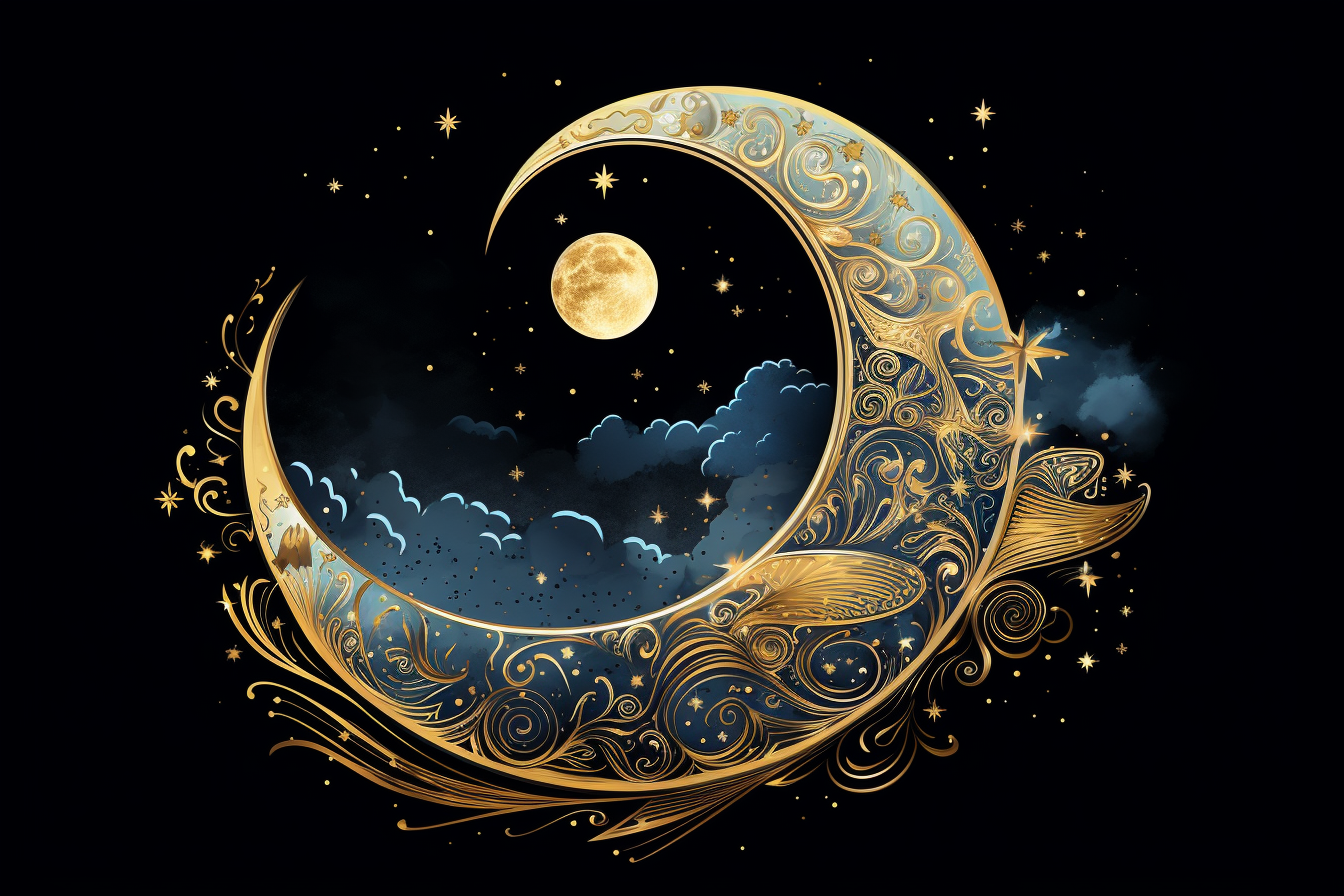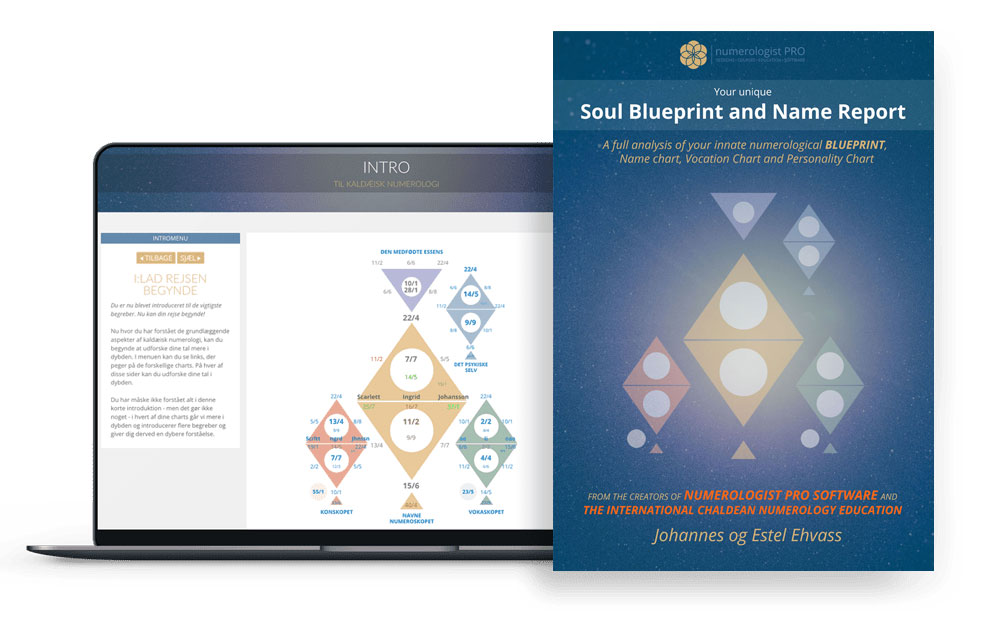The Moon in Astrology

Johannes Ehvass
Welcome, dear reader! In this series of articles, we delve into the fascinating realm of astrology and its emphasis on the heavenly bodies. Each heavenly body, replete with its own attributes and mythic tales, significantly influences our personalities, destinies, and the subtle web of connections in our lives. As we explore these celestial bodies, we will uncover the enduring insights and intricate details that make astrology an intriguing and enduring field. Join me on this journey to discover the mysteries and allure of the planets.
The Moon: Its Celestial Mystique and Symbolism

In the luminous night sky, the Moon shines with a gentle glow, weaving tales of emotion, intuition, and cycles. As Earth’s only natural satellite, it plays an instrumental role both in our natural world and in the intricate tapestry of human culture and astrology. Let’s delve into the Moon’s astronomical significance, its symbolic representations, and its foundational place in astrological history.
Astronomical Significance
The Moon’s Role as Earth’s Only Natural Satellite
The Moon, Earth’s solitary satellite, orbits our planet in a synchronous rotation, always showing us the same face. This unique characteristic, called tidal locking, is a testament to the Moon’s close relationship with Earth over billions of years.
Impact on Earth’s Tidal Rhythms, Nocturnal Illumination, and Geological Activities
Among its profound influences, the Moon primarily dictates the ebb and flow of Earth’s tides. The gravitational dance between Earth and the Moon causes oceanic tides to rise and fall, a phenomenon observed and marveled at by generations. Additionally, the Moon illuminates our nights, guiding nocturnal creatures and inspiring countless poets and artists. This celestial body has also been implicated in certain geological activities like triggering earthquakes, although such theories remain subjects of scientific exploration.
Symbolic Representations
The Moon as a Symbol of Emotion, Intuition, the Unconscious, and Cycles
In the realm of symbolism, the Moon resonates with the ebb and flow of emotions. It represents intuition, the deep waters of the unconscious, and the ever-revolving cycles of life. As the Sun’s counterpart, the Moon also embodies the feminine aspect, the Yin to the Sun’s Yang, illustrating the balance of forces in nature and within ourselves.
Historical and Cultural Interpretations
Across various cultures, the Moon has been personified and revered. In ancient Egypt, the Moon deity Khonsu was associated with time and healing. The Greeks honored Selene, the luminous Moon goddess who drove her silver chariot across the night sky. Similarly, the Romans celebrated Luna, their Moon goddess.
Lunar festivals, such as the Chinese Mid-Autumn Festival or the Japanese Tsukimi, celebrate the Moon’s beauty and its cyclical nature. These festivals, often associated with harvest, gratitude, and familial ties, highlight the Moon’s cultural and agricultural significance.
The Moon in Astrological History
The Moon’s predictable phases made it a central figure in ancient astrological systems. Its waxing and waning, symbolic of growth and decline, became metaphors for human experiences and cycles of life.
The Dawn of Lunar Astrology
In ancient Mesopotamia, where many believe astrology was birthed, the Moon played a pivotal role. The earliest astrologers, primarily observing lunar cycles, used the Moon for timekeeping and omens. Its monthly cycle, more apparent than the Sun’s yearly cycle, made it a primary celestial body for early observations and predictions.
Evolving Lunar Significance
As astrology spread and transformed, the Moon’s role expanded. Hellenistic astrology, with roots in Babylonian practices, emphasized the Moon’s influence on one’s emotions, instincts, and unconscious mind. This perspective endured, evolving into modern Western astrology, where the Moon sign — the zodiacal position of the Moon at one’s birth — profoundly influences emotional responses and intuitive capacities.
In conclusion, the Moon, with its gentle glow and rhythmic cycles, has been an ever-present guide for humanity. Its astronomical roles, combined with its rich tapestry of symbolic meanings and its foundational place in astrological thought, make it an irreplaceable celestial body in our journey of understanding ourselves and the cosmos.
The Moon in Major Astrological Traditions
The Moon, with its mystic glow and captivating phases, has always held a special place in the annals of astrology across various cultures and traditions. Its influence is pervasive, often shaping core tenets of astrological practices globally. This section delves into how the Moon is perceived and interpreted in major astrological traditions around the world.
Western Astrology
The Moon as the Mirror of Emotion and the Unconscious
In Western astrology, the Moon is often seen as the realm of emotions, instincts, and the deeper, unconscious layers of the psyche. It reflects our innermost needs, our reactions, and often the way we instinctively respond to the world around us. This makes the Moon an essential component in understanding an individual’s emotional makeup.
Its Role in the Natal Chart and Lunar Returns
In a natal chart, the position of the Moon by sign, house, and aspect can provide profound insights into one’s emotional nature, nurturing instincts, and even the relationship with the maternal figure. The house in which the Moon resides can indicate the area of life where one seeks comfort and emotional security.
Furthermore, just as the Sun has its Solar Return, the Moon has its Lunar Return – a monthly cycle when the Moon returns to the exact position it occupied at birth. This chart gives insights into the emotional landscape of the month ahead and can be a valuable predictive tool.
Vedic (Indian) Astrology
The Moon (Chandra) as a Vehicle of the Mind and Soul’s Desires
In Vedic astrology, or Jyotish, the Moon, known as Chandra, holds significant importance. Chandra is often seen as the vehicle of the mind, embodying the mental and emotional facets of an individual. The position of Chandra in one’s birth chart can dictate their mental tendencies, emotional responses, and even their relationship with their mother or maternal figures.
Moon’s Connection to Nakshatras
The zodiac in Vedic astrology is divided not just by signs, but also by Nakshatras or lunar mansions. These 27 Nakshatras, each ruled by a specific deity, play a vital role in understanding an individual’s nature. The Moon’s position in a particular Nakshatra at birth provides deeper insights into one’s mind, tendencies, and life path.
Chinese Astrology
The Role of the Moon in Lunar Calendar and Zodiac
Chinese astrology heavily relies on the lunar calendar. New years, festivals, and various rituals are often based on lunar cycles. The popular Chinese Zodiac, consisting of 12 animal signs, is also intimately linked with the lunar calendar, with each year associated with a particular animal.
Its Symbolism in Yin-Yang Balance
The Moon, with its cool and receptive energy, is often associated with the Yin principle in Chinese cosmology. It represents the passive, intuitive, and nurturing aspects of life, balancing the active Yang energies of the Sun. This Yin-Yang relationship between the Sun and the Moon is central to understanding cosmic balance in Chinese thought.
Mayan, Egyptian, and Other Traditions
The Moon in Mayan Astrology
The Mayans, with their intricate calendars and astrological systems, viewed the Moon as a symbol of cycles, fertility, and rebirth. Their lunar goddess, Ix Chel, was associated with childbirth, medicine, and weaving. The Moon’s phases, especially the New and Full Moon, held significant ceremonial importance in the Mayan tradition.
Egyptian Lunar Deities and Astrological Significance
In ancient Egypt, the Moon was personified by several deities, with Thoth and Khonsu being the most prominent. Thoth, the god of wisdom, was also linked to the Moon and its cycles, emphasizing the Moon’s association with knowledge and timekeeping. Khonsu, depicted as a young man with a crescent moon on his head, was invoked for protection and healing.
Other Cultural Interpretations
From the Celtic traditions, which had moon goddesses like Arianrhod, to African legends where the Moon played roles in creation myths, lunar lore is rich and diverse. Almost every culture has woven tales around this luminous celestial body, viewing it as a nurturer, timekeeper, and even a harbinger of change.
In conclusion, the Moon’s influence in astrology is both deep and vast. Across different traditions and cultures, its phases and positions have been observed, recorded, and revered. The Moon not only illuminates our night sky but also sheds light on our innermost emotions, instincts, and intuitive capacities. Whether in Western, Vedic, Chinese, or any other tradition, the Moon remains an essential key to unlocking our astrological insights and understanding.
The Moon: Lunar Influence Through the Zodiac
While the Sun’s transit through the zodiac reflects our conscious actions and outer self, the Moon’s journey offers insights into our emotions, instincts, and subconscious. Understanding how the Moon influences each zodiac sign allows for a deeper comprehension of one’s emotional nature and reactions to the world around them.
Moon in Aries
When the Moon is in Aries, emotions are expressed with spontaneity and passion. Individuals with this placement are known for their impulsive reactions, craving for excitement, and pioneering spirit. Challenges arise when their impulsiveness leads to rash decisions, but their strength lies in their ability to bounce back quickly from setbacks.
Moon in Taurus
Taurus Moon individuals seek emotional security and stability. They find comfort in the tangible, be it in possessions or consistent routines. While they resist change and can be stubborn, their loyalty and determination to see things through is commendable.
Moon in Gemini
Curiosity and a need for mental stimulation characterize those with their Moon in Gemini. Their emotions are intertwined with their thoughts, leading to a varied emotional landscape. While they can be changeable and restless, their adaptability is unparalleled.
Moon in Cancer
In its domicile, the Moon in Cancer amplifies intuitive and nurturing qualities. These individuals are highly empathetic, protective, and seek deep emotional connections. Their challenge is their susceptibility to mood swings, but their ability to care for others is unmatched.
Moon in Leo
With the Moon in Leo, emotions are grand and expressed with warmth and flair. These individuals crave recognition and are generous in their affections. Their challenge lies in their susceptibility to wounded pride, but their strength is their unwavering loyalty.
Moon in Virgo
Practicality meets emotion with the Moon in Virgo. Individuals here find comfort in routines, analyzing their feelings, and assisting others. Their tendency to worry can be challenging, but their meticulous care and attention to detail are their assets.
Moon in Libra
Harmony in relationships and surroundings is crucial for those with the Moon in Libra. They are natural diplomats, seeking balance and fairness. While they might struggle with decision-making, their ability to see multiple perspectives is a gift.
Moon in Scorpio
Intensity and depth characterize Scorpio Moon individuals. They experience emotions deeply, with passion and resilience. Trust issues can be their challenge, but their strength is their transformative and healing capabilities.
Moon in Sagittarius
Adventure and the quest for knowledge drive those with the Moon in Sagittarius. They are optimists at heart, seeking freedom and truth. Their challenge is their fear of commitment, but their strength is their visionary spirit.
Moon in Capricorn
Responsibility and structure are essential for Capricorn Moon individuals. They seek security through achievement and are often wise beyond their years. Their challenge is their tendency to suppress emotions, but their discipline and endurance are admirable.
Moon in Aquarius
Individuality and a quest for the greater good define those with the Moon in Aquarius. They think outside the box, valuing freedom and innovation. While they might struggle with emotional detachment, their visionary ideas and humanitarian spirit shine brightly.
Moon in Pisces
Empathy and intuition are amplified with the Moon in Pisces. These individuals are dreamers, connected deeply to the collective unconscious. Their challenge is their tendency to escape reality, but their compassion and artistic flair are truly special.
In conclusion, the Moon’s journey through the zodiac illuminates the diverse emotional landscapes we navigate. By understanding its influence in each sign, we gain deeper insights into our reactions, needs, and intuitive responses, enriching our self-awareness and connections with others.
The Moon: Its Presence in Houses and Aspects
The Moon’s placement in the natal chart reveals layers of our emotional nature, innermost needs, and intuitive tendencies. By understanding its position in houses and its aspects with other planets, we can further decode our lunar influences.
The Moon in Astrological Houses
Moon in the 1st House
Individuals with their Moon in the 1st House wear their emotions on their sleeves. They are intuitive, reactive, and their mood significantly affects their self-image and the impression they make on others.
Moon in the 2nd House
Emotional security is tied to material and financial stability for those with this placement. They find comfort in possessions and may equate self-worth with financial status.
Moon in the 3rd House
Emotions and thoughts intermingle here. Individuals are expressive, curious, and their emotional well-being may be tied to their relationships with siblings or their immediate environment.
Moon in the 4th House
Home, family, and roots hold emotional significance. There’s a deep connection to the past, and one’s home becomes a sanctuary for emotional replenishment.
Moon in the 5th House
Emotions are expressed creatively and dramatically. There’s a strong bond with children and a love for recreational activities. Romance also plays a significant role in their emotional well-being.
Moon in the 6th House
Routines, work, and health are intertwined with emotional states. These individuals find emotional satisfaction in serving and may be particularly intuitive about health matters.
Moon in the 7th House
Relationships and partnerships heavily influence emotional well-being. There’s a need for emotional connections with others, and relationships often mirror their inner emotional state.
Moon in the 8th House
Emotions run deep, and there’s a fascination with mysteries, transformation, and shared resources. These individuals experience intense emotional transformations throughout their lives.
Moon in the 9th House
A thirst for adventure and knowledge drives the emotional life. Travel, philosophy, and higher education can be sources of emotional growth and satisfaction.
Moon in the 10th House
Public image, career, and reputation are closely tied to emotional identity. These individuals are driven to achieve, and their emotional well-being is connected to their professional successes or failures.
Moon in the 11th House
Friendships and group activities play a significant role in emotional experiences. There’s a need to belong to a community or group, and dreams and hopes are vital for emotional fulfillment.
Moon in the 12th House
The inner world is rich and vast. There’s a need for solitude and introspection, and there might be unconscious emotional patterns or hidden feelings that need to be addressed.
The Moon’s Aspects with Other Planets
Moon Conjunct Sun
The Sun and Moon aligned make for a powerful blend of one’s identity and emotions. The will and intuition are in harmony, but there can be an intense struggle between inner needs and external expression.
Moon Square Mars
This challenging aspect suggests emotional impulsiveness. There’s a potent mix of passion and aggression, which can lead to confrontations but also to a strong drive to meet emotional needs.
Moon Trine Venus
Harmony between the emotions and one’s values and affections is indicated. There’s a natural ease in expressing love, beauty, and appreciation.
Moon Opposite Jupiter
Emotions and expansion are themes here. Individuals may go to emotional extremes, oscillating between optimism and pessimism. There’s a need to find balance between emotional needs and excesses.
Moon Sextile Saturn
This positive aspect indicates emotional maturity and discipline. Emotions are expressed with responsibility, and there’s a deep understanding of one’s emotional boundaries.
In conclusion, the Moon’s placement in houses and its aspects with other planets offer profound insights into our emotional landscapes, reactions, and intuitive inclinations. By exploring these, we dive deeper into understanding our inner selves and our interactions with the world around us.

Johannes & Estel: Renowned authorities in Numerology, Astrology, and the esoteric arts. As the founders of Scandinavia's premier Numerology school, we're delighted to share our insights through this curated series on astrology. Dive in and discover the stars.
The Worlds Most Advanced Numerology Report

Your birthdate reveals your unique life purpose, potentials, talents, weaknesses, and karma in this life.
Your names show what you attract into your life regarding your career, relationships, happiness, money, and success.
GET THE REPORT HERE
Introduction to Astrology
The history of Astrology
Moving beyond deterministic astrology
Foundation of Astrology: Planets, Signs and Houses
Astrology and the Holographic Universe
The Holographic Universe
The Human Psyche as a Mirror to The Solar System
The Human Body as a Mirror to The Star Signs
Astrology Background
Egyptian Astrology
Mayan Astrology
Chinese Astrology
Indian Astrology - Jyotish
Celtic Astrology
Tibetan Astrology
Mesopotamian Astrology
Early Mesopotamian Astrology: The Dawn of Celestial Divination
Enuma Anu Enlil: The Epicenter of Babylonian Celestial Omen Interpretation
Babylonian and Chaldean Astrology
Babylonian and Chaldean Astrology
Chaldean influence and evolution
Chaldean Wisdom: Safeguarding and Transmitting Astrological Knowledge
Hellenistic Astrology
Hellenistic Astrology background
Claudius Ptolemy and Tetrabiblos
Vettius Valens
Dorotheus of Sidon
Persian Astrology
Persian Astrology background
Sassanian Astrology
Late Antiquity and The Transition Period
Late Antiquity and The Transition Period
Hellenistic to Islamic Transition: The Torchbearers of Astrological Wisdom
Islamic Golden Age
Arabian Astrology Background
Arabian Astrology Contributions
Medieval Astrology
Introduction: The Medieval Cosmos
Monastic Preservers: Astrological Knowledge in the Dark Ages
Astrology in Medieval Medicine
Kings, Queens, and Constellations: Astrology in the Medieval Court
The Church and the Stars: A Contentious Relationship
Universities and Scholastic Pursuits: Academic Astrology
Astronomy & Astrology: Tools of the Trade
Medieval Astrological Houses and the Synthesis of Traditions
Transition to the Renaissance: Humanism and the Celestial Arts
Reflections: Medieval Astrology's Echoes in Modern Practice
Astrological Art of the Middle Ages
Famous Medieval Astrologers
Medieval Astrological Texts
Renaissance Astrology
Renaissance Humanism and Astrology
Scientific Advancements and Astrology
The Social Fabric: Astrology in Everyday Renaissance Life
Court Astrologers of the Renaissance
Controversies and Conflicts: Astrology Under Scrutiny
Renaissance Texts and Authors: Continuation of a Tradition
Astrology and Art: Celestial Imagery in the Renaissance
Renaissance Astrological Practices: Evolutions and Innovations
End of the Renaissance: The Gradual Decline of Astrological Influence
Renaissance Astrology's Echo in the Modern World
Enlightenment Astrology
Introduction: The Enlightenment and Astrology
Challenging the Stars: Astrology's Critics during the Enlightenment
Astrology and the New World
Astrology in the 19th Century
The Dawn of Psychological Astrology
Astrology in the 20th Century: A Modern Renaissance
Astrological Associations and Schools
Modern Controversies and Astrology
Astrology and Popular Culture
Astrology and Technology
Current Trends and Future Directions in Astrology
Conclusion: Reflecting on Astrology's Evolution
The Planet Significances
The Sun in Astrology
The Moon in Astrology
Mercury in Astrology
Venus in Astrology
Mars in Astrology
Jupiter in Astrology
Saturn in Astrology
Uranus in Astrology
Neptune in Astrology
Pluto in Astrology
Chiron in Astrology
Black Moon Lilith in Astrology
Pars Fortuna in Astrology
Ceres in Astrology
Houses in Astrology
Introduction to Astrological Houses
The Angular Houses
The Succedent Houses
The Cadent Houses
The 1st House
The 2nd House
The 3rd House
The 4th House
The 5th House
The 6th House
The 7th House
The 8th House
The 9th House
The 10th House
The 11th House
The 12th House
Interaction Between Houses
Derived Houses, House Rulers, and Interceptions
Conclusion: Synthesizing House Knowledge
All Materials © 2023 & 2024 Numerologist PRO
Terms of Service: Information provided by Numerologist PRO and/or from this web site is not intended as advice (medical, psychological, financial or other), nor is it intended to replace your work with a qualified professional (medical or otherwise). You should maintain your relationship with your providers and consider the services of this site as informational only. Any information, stories, examples, or testimonials presented on this website do not constitute a warranty, guarantee, or prediction regarding the outcome of an individual. This web site is a sharing of knowledge and information of numerology/energy work based on the experiences of Numerologist PRO. You are encouraged to make your own decisions based on your own research and inner guidance. By booking and receiving services, you agree to fully release and hold harmless Numerologist PRO and all it's affiliated numerologists from and against any liability or claim that may arise out of or in connection with their service(s).
Numerologist PRO © 2021

CONTACT
numerologist@numerologistpro.com
LIKE US, and get free numerology tools, info about your personal numbers, best business dates of the year - and more!
YOUR FREE NUMEROSCOPE CHART
Enter your name and email below and get access to our free online numerology chart tool.